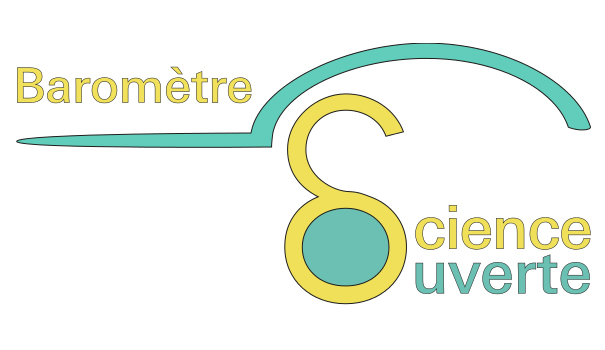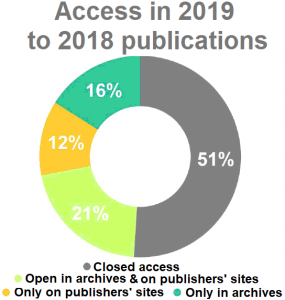49% of French publications in open access
The second Flash Note published by the Baromètre français de la science ouverte (French Open Science Monitor) has announced that the proportion of French publications published in 2018 and available in open access in December 2019 is 49%, or nearly 75,000 publications. The note also highlights another point – the increase of 10 points from 41% to 51% for 2017 publications.
Source: Baromètre de la science ouverte https://bso.esr.gouv.fr
There is an increase in the open access rate for the most recent publications which can be explained by publishers’ mobile barriers expiring (plus 10 points in openness for 2017 publications). Conversely, older publications are almost exclusively put in open access through deposits in open archives (plus 5 points for 2013 publications).
There is still a clear disparity in the proportion and modalities of open-access publishing between disciplines. These figures relate to works published in 2018 classed according to their discipline and as observed in December 2019.
Mathematics is in the lead with 71% through open access in open archives; fundamental biology is at 62% mainly through open access on publishers’ sites while engineering sciences are at 37% through deposits in open archives.
These differences should not distract us from the fact that the increase in the rate of openness can be observed in all disciplines. The figures relate to works published in 2017 classed by discipline as observed in 2018 and 2019.
For example, there is a 13-point increase in medical research and social sciences, a 12-point increase in basic biology, an 11-point increase in mathematics and chemistry and a 2-point increase in engineering sciences.
The Baromètre français de la science ouverte was set up in the framework of the National Plan for Open Science which included a commitment to do so. Its initial aim is to measure the proportion of French scientific publications in open access and its progress classed by type of access and by discipline. It is based solely on open sources, mainly Unpaywall. Only publications with DOIs are taken into account.
The BSO is produced by the Ministry of Higher Education, Research and Innovation’s Sub-directorate for Information Systems and Statistical Studies (SIES).






